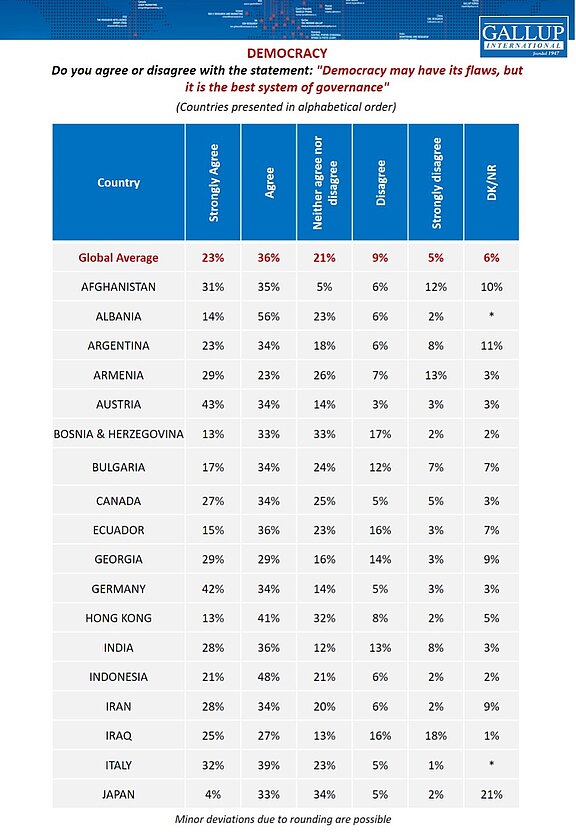Kancho Stoychev (in Sofia), +359 88 8611025
Johnny Heald (in London), +44 7973 600308
Dr Munqith Dagher (in Baghdad) +962 7 9967 2229
Steven Kang (in Seoul) +82-2-3702-2550
Antonio Asencio Guillen (in Madrid) +34 608191334
Torbjörn Sjöström (in Stockholm) +46 8 128 196 71
Methodology
The Gallup International End of Year Survey (EoY) is an annual tradition initiated by and designed under the chairmanship of Dr. George Gallup in 1977. The survey is conducted every year since then. This year it was carried out in 43 countries around the world.
Sample Size and Mode of Fieldwork
A total of 44 603 persons were interviewed globally. In each country a representative sample of around 1000 men and women was interviewed during October – December 2023 either face to face, via telephone or online.
The margin of error for the survey is between +3 – 5% at 95% confidence level.
About Gallup International
Gallup International Association (GIA) is the leading global independent association in market research and polling.
For more than 75 years Gallup International members have demonstrated their expert ability to conduct multi-country surveys on a comparable basis and deliver the highest quality. Our more than 100 members and partners are leading national institutes with a profound local knowledge of research methods and techniques, statistical sources, customs, and culture differences of its own country and carefully selected by the Association Board. With only one member agency per country, members work together daily to share knowledge, new research techniques and tools, as well as to provide the most appropriate solutions to international research projects and service our clients to the best of our abilities.















